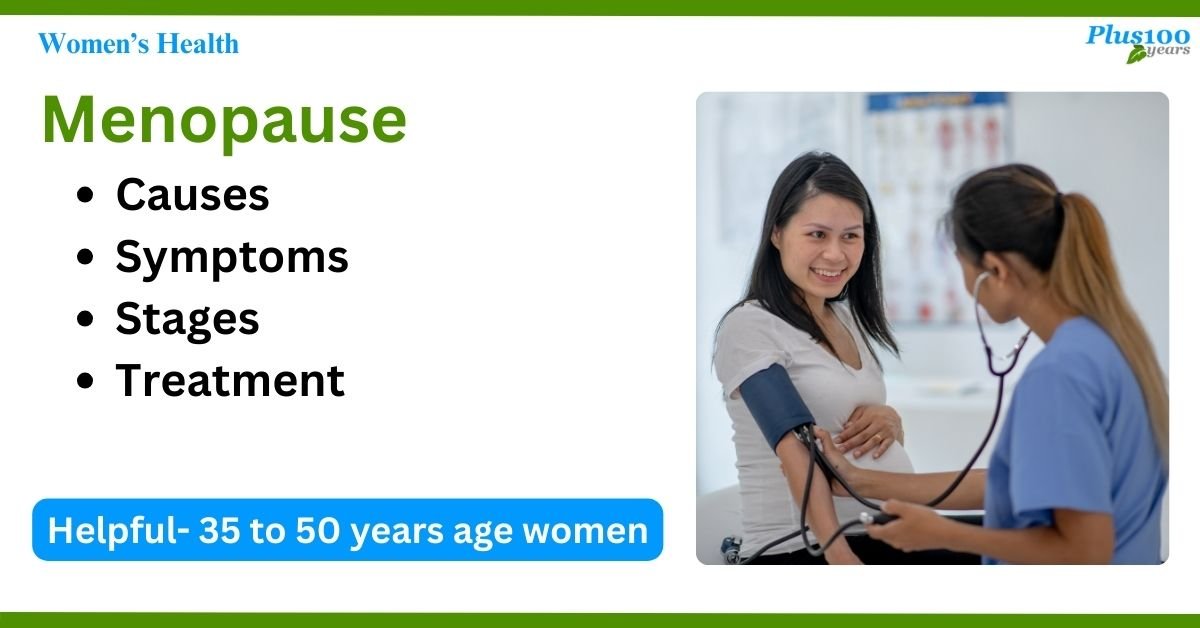Updated:16-03-2025
Menopause is associated with menstruation in women.
All women experience the end of the reproductive period after their forties, the menopause phase.
For some women, the symptoms may start in the early forties but it may take a couple of years more for the actual menstruation to stop.
On the other hand, few lucky women never experience any troubling symptoms and have an easy transition from menstruation phase to menopause.
Causes of Menopause
The ovaries are the reproductive organs of a female body.
The ovaries of a woman store limited the number of eggs.
These eggs are responsible for the production of two essential sexual hormones-progesterone and estrogen.
These two hormones control the ovulation and menstruation process in the body of women.
Menopause occurs when the ovaries stop releasing the egg.
This consequently leads to the stopping of menstruation.
When Menopause Does Happen?
Menopause is a normal thing to happen after a woman crosses her forties.
However, in the case of some women, the period of menopause can start earlier.
This can be due to surgical operations like hysterectomy, complications with the ovaries, chemical treatments such as chemotherapy, and more.
The end of the menstrual cycle before the age of forty irrespective of its cause is termed premature menopause.
Also Read: What Is The Best Time To Have Sex?
Stages of Menopause
The end of the menstrual cycle that is not induced by any surgical or medical treatment and that occurs naturally proceeds gradually in three stages.
These are:
1. Perimenopause: This period begins a couple of years earlier than the actual menopause stage.
During this stage, the process of making estrogen by the ovaries starts declining.
Perimenopause is continued until menopause when the ovaries stop forming the eggs.
During the later stages of perimenopause, women start experiencing menopause symptoms.
2. Menopause: If a woman does not have a period for at least one year or so then it is considered as an end of the menstrual cycle period.
During this period, the ovaries stop the release of eggs and the formation of estrogen completely.
3. Postmenopause: This is the period when menstruation has stopped completely for more than a couple of years.
Although the symptoms of menopause such as hot flashes go away for most women.
The health risks caused by less or no production of estrogen start affecting them with the onset of the postmenopause phase.
Common Symptoms of Menopause
- Skipped or irregular periods
- Mood swings
- Insomnia
- Irritability
- Depression
- Fatigue
- Headaches
- Racing heart
- Hot flashes
- Vaginal dryness
- Muscle and joint pains and aches
- Changes in sex drive
- Bladder control problems
Also Read: PCOD Problem Treatment – Know the Latest Natural Tips for PCOD
Treatment for Menopause
Different treatments are advised by doctors to control the symptoms of menopause. Some of them are:
- For treating vaginal dryness, non-estrogen lubricants and moisturizers such as Replens, Astroglide, or KY Jelly are prescribed.
- Combination hormone replacement therapy that includes progesterone and estrogen can be advised.
Precautions for the End of the Menstrual Cycle
- A healthy diet rich in fiber, proteins, vegetables, and fruits
- Regular exercise routine
- Quitting bad habits such as smoking and drinking alcohol
- Avoiding potential triggers such as spicy foods and caffeine
- Proper rest and sleep
If you follow all the above precautions you will have an easy transition from perimenopause to menopause and then to the postmenopausal period.
We welcome your comments on this post


